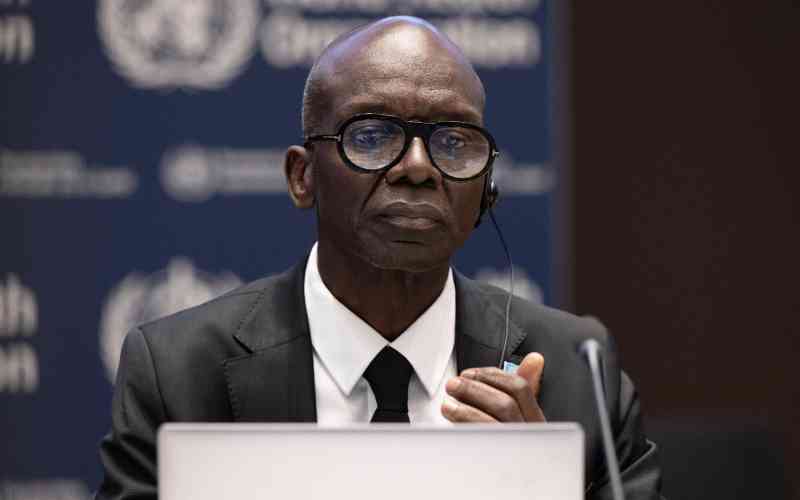PAPSS: A free market revolution in Africa's cross-border trade
Africa is experiencing a quiet revolution, one not marked by protest or upheaval, but by the silent yet powerful transformation of how Africans do business with one another. At the core of this transformation is the Pan-African Payment and Settlement System (PAPSS), a bold initiative that is redefining the mechanics of cross-border trade across the continent. For the Institute for Free Market and Entrepreneurship West Africa (IFREME), PAPSS represents one of the most exciting developments for trade liberalization, entrepreneurial freedom, and the creation of an integrated African marketplace.
For far too long, intra-African trade has been suffocated by outdated financial systems, fragmented regulations, and an overreliance on foreign currencies for settlement—even when transactions involve countries within the same region. A merchant in Ghana buying raw materials from Sierra Leone, for example, would often have to convert the cedi to US dollars, transfer through a foreign correspondent bank, then reconvert into leones. This process incurs high fees, days of waiting, and exposes both parties to unnecessary currency volatility.
These inefficiencies have stifled free trade and placed disproportionate burdens on Africa’s small and medium-sized enterprises (SMEs), many of whom cannot afford the costs or delays of traditional cross-border transactions. It has also created a dependence on external financial institutions, an ironic contradiction in a continent striving for economic sovereignty and self-reliance.
PAPSS: a revolutionary financial infrastructure developed by the African Export-Import Bank (Afreximbank) in collaboration with the African Union and the West African Monetary Institute. PAPSS enables real-time, cross-border payments in local currencies. It directly connects central banks, commercial banks, and other payment providers across Africa, making it possible for businesses and individuals to trade freely without relying on hard currencies or third-party institutions.
At IFREME, we view PAPSS not simply as a financial tool, but as a market-liberating instrument—one that is removing artificial barriers to trade and empowering African entrepreneurs to act on their ideas without unnecessary state or international interference. PAPSS aligns closely with our vision of a West Africa—and broader continent—where open markets, limited regulatory friction, and regional cooperation lead to economic expansion and individual prosperity.
One of the most powerful implications of PAPSS is its ability to stimulate intra-African trade, which remains dismally low.
As of 2022, trade between African countries accounted for only about 15% of total African trade, compared to over 60% in Europe and 50% in Asia. This statistic reveals a continent trading more with the rest of the world than with itself. Yet the African Continental Free Trade Area (AfCFTA) was launched to change this narrative—establishing the largest free trade zone in the world, covering 54 countries and over 1.3 billion people.
However, free trade agreements on paper are only as effective as the systems that support them.
PAPSS brings AfCFTA’s ambitions to life by enabling the kind of financial interconnectivity required for efficient cross-border commerce. It facilitates seamless payments in local currencies, which means African traders can transact with confidence, speed, and reduced cost. In turn, this fosters competition, lowers prices, and gives consumers better choices—all core principles of a functioning free market.
The system also supports currency sovereignty, reducing Africa’s collective dependence on the US dollar, euro, and other foreign currencies. This is an important step toward reclaiming Africa’s financial independence. By increasing the utility of African currencies and encouraging their use in regional trade, PAPSS helps restore trust in local economies while minimizing exposure to external shocks.
For entrepreneurs, especially those in the digital economy, agriculture, fashion, and creative industries, this is a game-changer. A designer in Côte d’Ivoire can now sell to customers in Nigeria and get paid instantly in their own currency. A tech startup in Senegal can hire remote developers in Benin and pay them in real-time. These are no longer distant dreams—they are new realities enabled by a decentralized and dynamic system.
Moreover, PAPSS complements private sector innovation. It opens new markets for fintech companies to develop tools that plug into this system—e-wallets, mobile payment solutions, invoice platforms, and other entrepreneurial ventures that further reduce the cost and complexity of doing business. It also encourages banks to innovate and compete across borders, rather than remain confined by outdated domestic frameworks.
Of course, challenges remain. The rollout of PAPSS requires strong institutional alignment, technical capacity, and continuous education for users. Some central banks may be slow to adapt, and regulatory differences across jurisdictions could introduce friction. However, these are solvable problems—provided governments do not use them as excuses to delay or overregulate. IFREME calls on policymakers to act as enablers, not obstacles, by facilitating open access, transparent policies, and minimal red tape.
PAPSS also opens up discussions on financial inclusion. By simplifying payments, the system indirectly benefits those previously excluded from the formal economy—women traders, rural artisans, gig workers—who can now access regional markets with just a mobile phone and a bank account. This builds a broader base of economic participation, without the need for subsidies or state handouts.
In essence, PAPSS is Africa’s invisible infrastructure; quiet, digital, and transformative. It lowers transaction costs, boosts liquidity, and fosters regional cooperation, all while preserving national autonomy. For IFREME, it is a shining example of what can be achieved when the continent invests in market-driven, pan-African solutions rather than externally imposed models of development.
As Africa continues its quest for prosperity, systems like PAPSS must not only be supported—they must be scaled, protected, and celebrated. It is through tools like this that African entrepreneurs will rise, free markets will flourish, and the dream of a truly connected, economically vibrant continent will come to life.
Email: [email protected]













